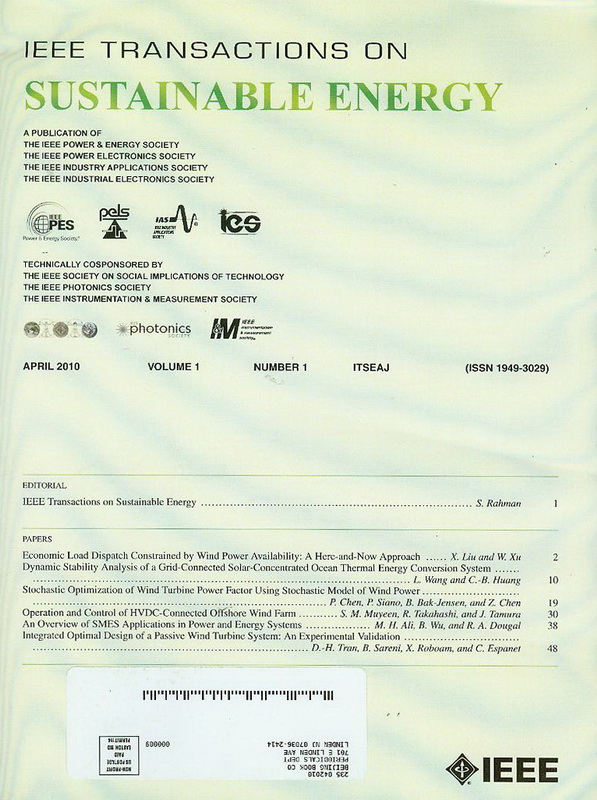Promote Data Sharing in Integrated Power-Traffic Networks: A Coalition Game Approach
IF 10
1区 工程技术
Q1 ENERGY & FUELS
引用次数: 0
Abstract
Accurately estimating spatial-temporal electric vehicles' (EVs) charging demands is crucial for the secure and economic operation of power systems. At present, the distribution system operator (DSO) relies on historical data collected at each charging station to estimate future EV charging demand. However, the station-level forecast disregards EVs' spatial correlations within traffic networks (TNs) and might suffer significant forecast error, forcing the DSO to make conservative scheduling at the expense of operation economics. To this end, this paper proposes to leverage cross-sector information (i.e., traffic demand data and network parameters in TNs) to enhance forecast accuracy and avoid over-conservative operations. To facilitate the data sharing among the DSO and TN data holders (i.e., traffic authority and navigation App. companies), we adopt the Coalition Game theory to uncover how these entities could cooperate to benefit each other, and to fairly allocate the extra profits (i.e., the operational cost reduction induced by the improved forecasts) among themselves. The conditional value-at-risk theory is adopted to model the risk-averse behavior of the DSO. In case studies, we reveal the non-negligible impact of TN condition variations on EV charging distributions. Moreover, numerical results show that sharing high-quality traffic data contributes to the reduction in DSO's operating cost by utmost 20.8% as compared to the current practice without data sharing.促进综合电力交通网络的数据共享:一个联盟博弈方法
准确估计电动汽车充电需求的时空分布对电力系统的安全、经济运行至关重要。目前,配电系统运营商(DSO)依靠在每个充电站收集的历史数据来估计未来的电动汽车充电需求。然而,站级预测忽略了交通网络中电动汽车的空间相关性,可能会出现较大的预测误差,迫使DSO以牺牲运行经济性为代价进行保守调度。为此,本文提出利用跨部门信息(即TNs中的交通需求数据和网络参数)来提高预测精度,避免过于保守的操作。为了促进DSO和TN数据持有者(即交通管理机构和导航应用程序公司)之间的数据共享,我们采用联盟博弈论来揭示这些实体如何合作以相互受益,并公平地分配额外的利润(即改进预测引起的运营成本降低)。采用条件风险价值理论对DSO的风险规避行为进行建模。在案例研究中,我们揭示了TN条件变化对电动汽车充电分布的不可忽略的影响。此外,数值结果表明,与不共享数据相比,共享高质量的交通数据可使DSO的运营成本最多降低20.8%。
本文章由计算机程序翻译,如有差异,请以英文原文为准。
求助全文
约1分钟内获得全文
求助全文
来源期刊

IEEE Transactions on Sustainable Energy
ENERGY & FUELS-ENGINEERING, ELECTRICAL & ELECTRONIC
CiteScore
21.40
自引率
5.70%
发文量
215
审稿时长
5 months
期刊介绍:
The IEEE Transactions on Sustainable Energy serves as a pivotal platform for sharing groundbreaking research findings on sustainable energy systems, with a focus on their seamless integration into power transmission and/or distribution grids. The journal showcases original research spanning the design, implementation, grid-integration, and control of sustainable energy technologies and systems. Additionally, the Transactions warmly welcomes manuscripts addressing the design, implementation, and evaluation of power systems influenced by sustainable energy systems and devices.
 求助内容:
求助内容: 应助结果提醒方式:
应助结果提醒方式:


